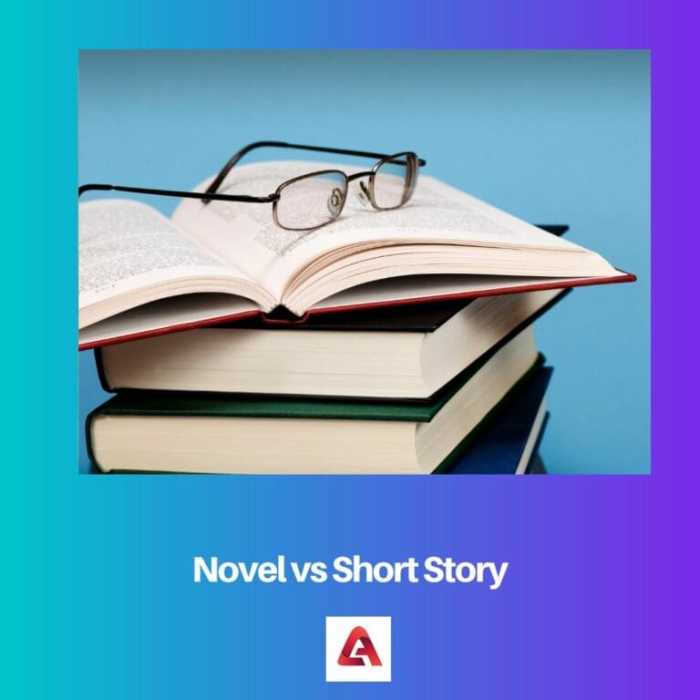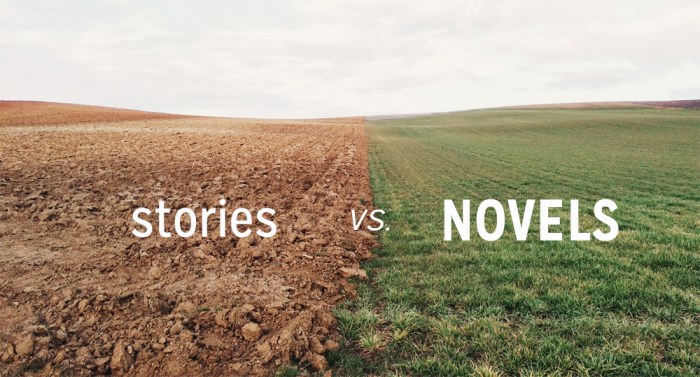Novel and short story difference – In the realm of literature, the distinction between novels and short stories stands as a fundamental divide, shaping the storytelling experience in profound ways. While both share the common thread of narrative, their differences in length, structure, and purpose give rise to unique literary landscapes.
This comprehensive analysis delves into the intricacies of novel and short story difference, exploring their distinct characteristics and the impact they exert on the storytelling process and reader engagement.
Length and Structure

Novels typically range in length from 50,000 to 100,000 words, while short stories are generally under 10,000 words. This difference in length significantly influences the structure and development of each genre.
Length, Structure, and Complexity Comparison
| Characteristic | Novel | Short Story |
|---|---|---|
| Length | 50,000-100,000+ words | Under 10,000 words |
| Structure | Complex, multi-plot, with subplots | Simple, single-plot, with few subplots |
| Complexity | High, with developed characters and settings | Lower, with simpler characters and settings |
Plot and Characterization

Novels typically feature complex plots with multiple threads and subplots, allowing for extensive development of characters and storylines. In contrast, short stories usually have simpler, single-plot structures with fewer characters and less intricate character development.
Depth and Complexity of Characters, Novel and short story difference
Due to their length, novels can explore characters’ motivations, emotions, and backgrounds in greater depth. Short stories, on the other hand, often focus on a single character or a few key characters, with less time for detailed characterization.
Setting and Atmosphere: Novel And Short Story Difference

Novels often create elaborate and immersive settings, providing readers with a sense of place and atmosphere. Short stories, while still employing setting, typically use it more sparingly, creating a focused and concise environment.
Influence of Length on Setting
The length of a work determines the level of detail and description used to create setting and atmosphere. Novels have ample space for detailed descriptions, while short stories must be more selective and efficient in their use of language to establish a setting.
Theme and Purpose
Novels often explore complex and nuanced themes through their extended length and character development. Short stories, on the other hand, may present more straightforward themes or focus on a single, central idea.
Scope and Depth of Themes
Novels can delve into multiple themes simultaneously, exploring them in depth. Short stories, due to their brevity, typically focus on a single theme or a limited number of related themes.
Commonly Asked Questions
What is the primary difference between a novel and a short story?
The fundamental distinction lies in their length, with novels typically exceeding 40,000 words and short stories falling below that threshold.
How does length influence the structure of a novel and a short story?
Length dictates the depth of character development, complexity of plot, and level of detail in setting and atmosphere.
What are the key differences in characterization between novels and short stories?
Novels allow for a more nuanced and in-depth exploration of characters, while short stories often focus on a single, central protagonist.
